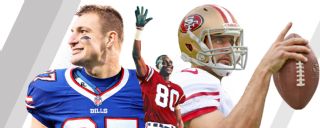|
Aaron Rodgers could have landed in Chicago or San Francisco. New England traded out of the spot in which San Francisco took Jerry Rice. Buffalo passed on Gronk, who grew up minutes away from the city. NFL Nation reporters pick the top draft "what ifs" for every team that could have had major ramifications -- good or bad -- on the future of each franchise: NFC East | NFC North | NFC South | NFC West
AFC East | AFC North| AFC South | AFC West NFC EAST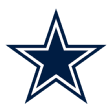 Dallas CowboysWhat if the Bengals hadn't selected James Francis No. 12 overall in 1990? The Baylor linebacker had been Jimmy Johnson's preferred choice. Johnson saw Francis as a do-everything linebacker with the ability to rush the passer or drop in coverage. The Cowboys had to "settle" for Emmitt Smith at No. 17, and all he did was help bring the Cowboys three Super Bowl wins in a four-year span and become the NFL's all-time leading rusher. Francis had a 10-year career, spending nine seasons with a Bengals team that largely floundered during his tenure. Smith has a record that looks like it never will be broken. -- Todd Archer  New York GiantsWhat if the Giants never made the trade for Eli Manning and kept Philip Rivers in 2004? Would they still have won those two Super Bowls? That's always a fun "what if?" Former Giants general manager Ernie Accorsi conceded over the years there wasn't a contingency plan if things fell through at the final minute. The Giants already had drafted Rivers even though they had Ben Roethlisberger rated ahead of him. In retrospect, it's hard to imagine the Giants would've struggled with Rivers, Shawne Merriman (the 2005 first-round pick from the trade), Nate Kaeding (third round in '04) and Roman Oben on their roster. The only question is whether it would've led to multiple Super Bowls. Rivers developed into a Pro Bowl quarterback. But something tells me the Giants might not be trying for their fifth trophy in the case this year if Rivers had remained a Giant. -- Jordan Raanan  Philadelphia EaglesWhat if the Eagles were more aggressive and drafted Russell Wilson in 2012? Then-coach Andy Reid was high on Wilson, and there have been countless tales of how the Eagles had intentions of taking the Wisconsin signal-caller in the third round. The Seahawks wrecked that plan by selecting Wilson 13 picks before Philly was on the clock. The Eagles went to Plan B and took Nick Foles, who started off hot, came back down to earth, was traded, and is now back with the team as a reserve. Wilson, meanwhile, has been a steady force on a Seahawks team that has averaged 11 wins over the past five seasons with two Super Bowl appearances (including one win). The Eagles are happy with their new QB, Carson Wentz, but a Wilson-Reid marriage would have changed the trajectory of the franchise. The lesson: If you are sold on a particular quarterback, don't wait around for him to come to you. -- Tim McManus  Washington RedskinsWhat if the Redskins had never drafted Robert Griffin III in 2012? It certainly looked like a good move at the time when Griffin became the NFL Rookie of the Year and made the Pro Bowl. But Griffin hurt his knee, never developed as a passer and now is trying to find work with a third franchise. Had the Redskins kept their original choice (sixth overall), they likely would have selected QB Ryan Tannehill. It would have been interesting to see how he would have developed under Mike and Kyle Shanahan. It also would have given the Redskins three more draft choices, including two first-rounders, to try to rebuild an aging roster. After making the trade with St. Louis in 2012, the Redskins learned of salary cap penalties that cost them $36 million of cap space in '12 and '13. Losing those two first-rounders became a bigger deal, especially when Griffin failed to develop. -- John Keim NFC NORTH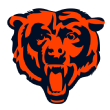 Chicago BearsWhat if the Bears had the foresight to draft Aaron Rodgers No. 4 overall in 2005? Can you imagine Rodgers quarterbacking the Bears when Brian Urlacher, Lance Briggs and Charles Tillman were all in their primes on defense? Chicago won back-to-back NFC North titles in '05-06 and reached Super Bowl XLI with Kyle Orton and Rex Grossman running the offense. Add Rodgers to the mix, and the Bears -- under Lovie Smith -- probably win multiple championships. Instead, the Bears drafted Cedric Benson, who lasted three years in Chicago. Since 2006, the Bears have qualified for the postseason one time -- ironically losing to Rodgers and the Packers at Soldier Field in the 2010 NFC Championship Game. -- Jeff Dickerson 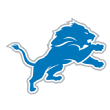 Detroit LionsWhat if the Lions had taken Andre Johnson instead of Charles Rogers at No. 2 overall in 2003? The entire course of the franchise in the 2000s might have changed. Instead of a bust at receiver in Rogers, then-quarterback Joey Harrington would have had a potential Hall of Fame pass-catcher and a reliable target instead of Rogers, Bill Schroder, Az-Zahir Hakim, Tai Streets and Scottie Vines as targets. The Lions might not have gotten Roy Williams the following year, but who knows what it would have done for Harrington's confidence having a guy such as Johnson. And as a final kicker to the switch, the reliability of Johnson likely would have meant general manager Matt Millen would not have taken wide receivers in the first round for three consecutive years -- something he never was able to get past in Detroit, particularly after two of the three (along with Mike Williams) were colossal NFL busts. -- Michael Rothstein 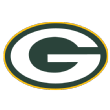 Green Bay PackersWhat if Aaron Rodgers hadn't fallen all the way to No. 24 overall in the 2005 draft? Who would be the quarterback today? While in the short term it might have extended Brett Favre's career in Green Bay and the messy divorce might have been avoided, it's a good bet that the Packers wouldn't be on a current run of eight straight playoff appearances. Or maybe Alex Smith would be their quarterback today. If the 49ers had taken Rodgers instead of Smith at No. 1, perhaps Smith would have been the Packers' pick at No. 24. -- Rob Demovsky  Minnesota VikingsWhat if the Vikings hadn't made the Herschel Walker trade? It might be the most infamous trade in NFL history, more because of what it did to set up the Cowboys' three championships in the 1990s. But had the Vikings not given up eight draft picks -- including three first-rounders and three second-rounders -- it's interesting to think about how the NFC would have looked in the early '90s, given the fact the Vikings still made the playoffs seven times in the decade. Assuming the Cowboys' dynasty doesn't happen without the trade, do the 49ers win another title or two? Do Brett Favre's Packers teams get to more than two Super Bowls? Or do the Vikings -- a frequent thorn in Favre's side -- use a few of those picks to acquire players that help put them over the top? -- Ben Goessling NFC SOUTH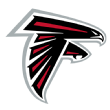 Atlanta FalconsWhat if the Falcons hadn't traded away five picks to move up and select Julio Jones No. 6 overall in 2011? If the trade never happened, general manager Thomas Dimitroff would have had to come up with a much better group of five players than the Browns did in return with DT Phil Taylor, WR Greg Little, RB Owen Marecic, QB Brandon Weeden and RB Trent Richardson. Having a player as dynamic as Jones certainly justified the trade, even if the Falcons voided themselves of some depth. Had the trade not occurred, maybe the Falcons could have landed a group of five that included DE Cameron Jordan (21st overall, 2011), WR Randall Cobb (59th overall, 2011), CB Richard Sherman (124th overall, 2011), LB Dont'a Hightower (22nd overall, 2012) and CB Josh Norman (118th overall, 2012). -- Vaughn McClure 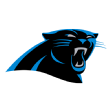 Carolina PanthersWhat if the Panthers hadn't given up their 1999 (No. 5) and 2000 (No. 12) first-round picks to Washington for Sean Gilbert? They would have had their choice of Ricky Williams, Torry Holt, Champ Bailey or Daunte Culpepper in 1999 and their choice of defensive ends Shaun Ellis and John Abraham in 2000. For a team that went 8-8 and 7-9 during those two seasons with Gilbert, it seems the value of those they could have had might have been better served. -- David Newton 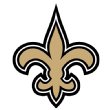 New Orleans SaintsWhat if the Saints had not traded the No. 1 overall pick in the 1967 draft? There are plenty of worthy candidates for a franchise once known as the "Aints," who didn't win their first playoff game for more than 30 years. (For example, what would be known as the wackiest draft trade in NFL history if the Saints hadn't swapped all of their picks, and more, for Ricky Williams in 1999?) But the Saints never truly topped their very first draft-day blunder, when they traded the No. 1 pick in the 1967 draft to the Colts for Johnny Unitas' backup quarterback, Gary Cuozzo. Cuozzo eventually lost the Saints' starting job to Billy Kilmer and got traded to the Vikings a year later (for two top-10 picks that never amounted to much). The Colts, meanwhile, drafted former NFL great defensive lineman Bubba Smith with that No.1 pick. -- Mike Triplett 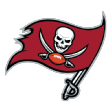 Tampa Bay BuccaneersWhat if the Bucs hadn't selected Mark Barron No. 7 overall in 2012? Tampa could have taken Luke Kuechly, who was picked two spots later and is a four-time Pro Bowler for Carolina. The Bucs' secondary struggled and Barron was traded to the Rams in 2014. The Bucs also could have picked Aaron Rodgers instead of selecting Cadillac Williams with the fifth overall pick in 2005. Rodgers went 24th overall. They also could have selected Drew Brees, who was taken 32nd overall in the 2001 draft, but instead, they selected a human-penalty machine in offensive tackle Kenyatta Walker. For an organization that's never had a true franchise quarterback until now, those misses are tough to swallow. -- Jenna Laine NFC WEST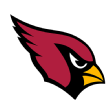 Arizona CardinalsWhat if the Cardinals had drafted Adrian Peterson No. 5 overall instead of tackle Levi Brown in 2007? This is a sore spot for Cardinals fans, as well as the franchise, a decade later. Arizona passed on drafting a franchise-changing running back in favor of a left tackle (which is a necessary requirement for a team to prosper). But just imagine pairing Peterson with Larry Fitzgerald? A lot of people in Arizona -- including Fitzgerald -- still wince at the lost opportunity. The Cardinals' only Super Bowl appearance in 2009 could've ended very differently had Peterson been in the backfield. Brown started 79 games for the Cardinals over seven seasons. -- Josh Weinfuss 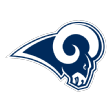 Los Angeles RamsWhat if the Lions had passed on the opportunity to take Matthew Stafford No. 1 overall in 2009? Not that it was a certainty, but what if the Rams had then taken Stafford with the No. 2 pick? Instead, the Rams chose Baylor tackle Jason Smith, who was expected to replace Hall of Famer Orlando Pace. Smith famously flopped, his three years in St. Louis marked by injury and underperformance. Stafford, meanwhile, has been a Pro Bowl-caliber quarterback for the past eight years and counting. Taking Stafford would've provided the Rams with a smooth transition from Marc Bulger and locked down the most important position for a decade. Who knows what would've come after? The Rams would've never drafted Sam Bradford, would've never had to move up to take Jared Goff. And they might not be coming off their 10th consecutive losing season. -- Alden Gonzalez 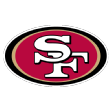 San Francisco 49ersWhat if the 49ers had drafted Aaron Rodgers instead of Alex Smith No. 1 overall in 2005? After the golden era of 49ers quarterback play spearheaded by Joe Montana and Steve Young had come to an end, the team found itself in a perpetual search to find the next in line. After a series of misses, the 49ers finally had their chance with the first pick in the 2005 draft. The choice came down to Utah's Smith or Cal's Rodgers. Rodgers grew up and played in the Niners' backyard (similar to Tom Brady, another eventual star quarterback the 49ers passed on) but then-coach Mike Nolan didn't view Rodgers as being the "safe" choice. Nolan believed Rodgers was arrogant and had questions about his throwing motion. The Niners went with Smith, who turned into a solid if unspectacular quarterback, while Rodgers has turned into one of the league's best players. Twelve years later, the 49ers' search for a franchise quarterback is still ongoing. -- Nick Wagoner 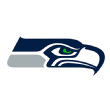 Seattle SeahawksWhat if the Seahawks had drafted Andy Dalton in 2011? General manager John Schneider reportedly was ready to pick Dalton with the 25th pick before the team decided to go with offensive lineman James Carpenter. Had the Seahawks gone with Dalton, they almost certainly would not have selected Russell Wilson the following season. Would Dalton have won the starting job as a rookie like Wilson did? Given the talent on defense, how far could a Dalton-led Seahawks team have gotten? The Bengals have never won a playoff game with Dalton at QB. The Seahawks have made it to the divisional round in every season with Wilson. -- Sheil Kapadia AFC EAST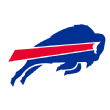 Buffalo BillsWhat if the Bills had drafted Rob Gronkowski in 2010? The Buffalo area is not a hotbed of NFL prospects, but Gronkowski -- perhaps the greatest tight end in NFL history -- grew up in nearby Williamsville, New York, and easily could have played for his hometown team. Every team except the Ravens, Panthers and Bears passed up Gronkowski before the Patriots selected him No. 42 in 2010. But the Bills had the No. 41 selection and took defensive tackle Torell Troup, whose career was cut short by a back injury. It is debatable whether Gronkowski would have been as successful without Tom Brady throwing him passes in Buffalo, but consider this: Of the 44 tight ends drafted by the Bills all-time, none has made the Pro Bowl. Gronkowski has made it four times. -- Mike Rodak 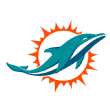 Miami DolphinsWhat if the Dolphins had drafted Darrelle Revis in 2007? The Dolphins' 2007 draft was littered with "what ifs?" but the biggest was ninth overall pick Ted Ginn Jr., who was not close to being a No. 1 receiver. There were plenty of franchise players available such as Revis, linebacker Patrick Willis and running back Marshawn Lynch. Miami also selected quarterback bust John Beck in the second round and tailback Lorenzo Booker in the third round that year in a draft that contributed to its worst record (1-15) in franchise history. -- James Walker 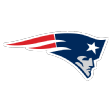 New England PatriotsWhat if the Patriots had drafted Jerry Rice in 1985? The Patriots traded the 16th pick in the draft to San Francisco, along with a third-round selection, in exchange for picks in the first (28th), second (56th) and third (84th) rounds. The 49ers selected Rice with the 16th overall pick. Perhaps Rice never would have had the same Pro Football Hall of Fame career, or maybe he would have starred in New England and the team's current run of success would have started even sooner. That's a fun one to consider, right there with what life would be like for the Patriots if they didn't turn in their 2000 draft card with Tom Brady's name on it in the sixth round (199th overall). -- Mike Reiss 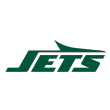 New York JetsWhat if the Jets had drafted Brett Favre in 1991? The Jets thought they had a trade worked out with the Cardinals. The plan was to switch places with the Cards in the second round and pick Favre, whom the Jets had rated as the No. 1 player on their draft board. (They had no first-round pick.) At the last minute, the trade fell apart. Favre went to the Falcons and, with the next pick, the Jets settled for QB Browning Nagle. His career consisted of 500 fewer touchdown passes than Favre. -- Rich Cimini AFC NORTH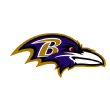 Baltimore RavensWhat if the Ravens drafted Tom Brady in 2000? Matt Cavanaugh, Baltimore's offensive coordinator at the time, placed a second- or third-round grade on Brady, but he didn't sell Brady as a can't-miss prospect. As a result, the Ravens selected quarterback Chris Redman in the third round. Redman won a total of four games in his eight-year career, while Brady became the first quarterback to win five Super Bowls after being selected in the sixth round by the Patriots. The Ravens are left to wonder what Brady could've done for them if paired with Ray Lewis and Ed Reed on defense. -- Jamison Hensley 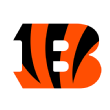 Cincinnati BengalsWhat if the Bengals traded with the Saints instead of sticking with Akili Smith in 1999? The Saints offered the Bengals nine picks -- all of their picks in 1999, first-round picks in 2000 and 2001, and a second-round pick in 2002. But the Bengals didn't budge from the No. 3 overall pick and selected Smith, who was benched by his second season. If the Bengals had accepted the offer, they would have moved down to No. 12 in the 1999 draft, but at least had the No. 2 overall pick in the 2000 draft in addition to their original pick. On the board at that time -- Brian Urlacher. In 2002, the Bengals likely would have picked No. 23 overall via the trade, in addition to their other original first-round selection. Drew Brees would have still been available. The Bengals, however, would have actually had to hit on those extra draft picks. Of all the players they selected in 1999 and 2000, none made the Pro Bowl as a Bengal. They didn't strike gold until 2001, when they selected wide receiver Chad Johnson in the second round. The Bengals went 4-12 in 1999, 4-12 in 2000, 6-10 in 2001 and 2-14 in 2002, finally righting the ship in 2003 when they hired Marvin Lewis and drafted quarterback Carson Palmer. Could one of those extra picks have changed the direction of the franchise starting in 1999? -- Katherine Terrell 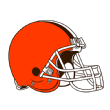 Cleveland BrownsWhat if the Browns had drafted Khalil Mack and Derek Carr in 2014? The team never gave much consideration to Mack, who has turned into a star for the Raiders. Had the Browns taken Carr, their quarterback saga might have ended. The most painful part of the story: Instead of Mack and Carr, the Browns wound up with Justin Gilbert and Johnny Manziel in the first round. It's not overstating it to say that draft set the Browns back five years. -- Pat McManamon 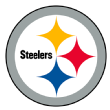 Pittsburgh SteelersWhat if the Steelers had drafted Darrelle Revis in 2007? In Mike Tomlin's first season with the franchise, Revis went one selection ahead of the team's No. 15 pick, which it used on linebacker Lawrence Timmons. What if Revis fell one more spot? The Steelers' defense would have rolled out a vicious corner tandem of Ike Taylor and Revis, who grew up in the Pittsburgh area. Revis would test his shrewd business sense with the Steelers' patient, tradition-rich organizational approach. Perhaps Revis could have retired on his own terms -- as a Hall of Famer in his hometown. -- Jeremy Fowler AFC SOUTH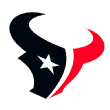 Houston TexansWhat if the Texans had drafted Derek Carr in 2014? After a 2-14 season, the Texans had the No. 1 pick in the 2014 draft. They used the first overall pick on Jadeveon Clowney, but Carr was still on the board at No. 33. Instead, Houston took guard Xavier Su'a-Filo, who has not been an impact player thus far. Carr, who is the brother of former Texans No. 1 pick David Carr, had a breakout season in 2016 and has been consistent for the Raiders for the past three seasons. Meanwhile, the Texans have started eight different quarterbacks during that time period. -- Sarah Barshop 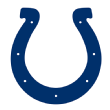 Indianapolis ColtsWhat if the Colts had taken Ryan Leaf over Peyton Manning No. 1 overall in 1998? The state-of-the-art Lucas Oil Stadium likely wouldn't be in Indianapolis because Leaf lasted only three seasons in the league. Manning's right arm and intelligence helped the Colts to 11 seasons of 10 or more victories, 11 postseasons and a Super Bowl title. Manning is a lock to be a first-ballot Hall of Famer. The Colts are hoping their decision to take Andrew Luck with the No. 1 overall pick over Robert Griffin III in 2012 will end as well. -- Mike Wells 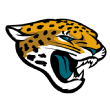 Jacksonville JaguarsWhat if the Jags drafted Russell Wilson in 2012? The Jaguars drafted Blaine Gabbert 10th overall in 2011 and brought in Chad Henne as a free agent in March 2012, so there was no reason for the Jaguars to consider taking a quarterback in the 2012 draft. That's why they never even considered Wilson in the third round, instead opting to use the 70th overall pick on punter Bryan Anger. Four picks later, Seattle took Wilson -- who had a fantastic career at NC State and Wisconsin -- and eventually led the Seahawks to a pair of Super Bowl appearances. How much different would the Jaguars' fortunes be in the weak AFC South had Wilson been the starter over the past five seasons? It's unlikely the franchise would be entering the 2017 draft having lost at least 11 games for six consecutive seasons. -- Mike DiRocco 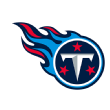 Tennessee TitansWhat if the Titans had drafted Randy Moss in 1998? He was still on the board at No. 16, when the Titans were the Tennessee Oilers, but they drafted Kevin Dyson out of Utah instead. Dyson had the ball in his hands for the franchise's two iconic moments: the Music City Miracle and the stretch that came up short of the goal line and a tie on the final play of Super Bowl XXXIV. But Moss, drafted 21st in Minnesota, scored 17 TDs as a rookie, 92 in eight years with the Vikings and 156 in his 14 seasons. The Titans have yet to have a receiver nearly as dynamic. Moss was with three teams in 2010, including eight games with the Titans when they had no idea what to do with him at that stage. -- Paul Kuharsky AFC WEST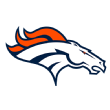 Denver BroncosWhat if coach Josh McDaniels had done more with the Broncos' 2009 class? The team had two first-round picks -- Knowshon Moreno and Robert Ayers -- who never were selected to a Pro Bowl. McDaniels, by then the lead voice in the Broncos' personnel decisions, traded a first-round pick to move up in the second round to take Alphonso Smith, whom he eventually shipped out. One of the other second-rounders, tight end Richard Quinn, didn't think he would be drafted and never caught a pass for the team. Of the 10 players in the draft class, Moreno led the team in rushing three times, but only safety David Bruton Jr. (a fourth-rounder) consistently played at or above the level of where he was selected. The Broncos had five picks in the draft's top 64 players -- two became starters and none was named to a Pro Bowl. McDaniels was fired 12 games into the 2010 season. -- Jeff Legwold 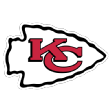 Kansas City ChiefsWhat if the Chiefs could've drafted Andrew Luck? In 2013, the one time the Chiefs had the draft's No. 1 overall pick, there was no quarterback worthy of such a lofty selection. But if Andrew Luck had stayed at Stanford for his final season instead of declaring for the 2012 draft, there would have been. There's no telling what the Chiefs would have accomplished the past four seasons if Luck was their quarterback. But it's safe to say they would have done better than one AFC West title and one playoff victory. -- Adam Teicher 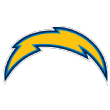 Los Angeles ChargersWhat if Peyton Manning had fallen to the Chargers at No. 2 overall in 1998? The move would have put a team four years removed from a Super Bowl appearance right back in position to contend for an NFL title, and also changed the career paths of future franchise quarterbacks in Philip Rivers and Drew Brees, as the Chargers likely would have passed on both with Manning in the fold. And a Super Bowl appearance led by Manning could have been the driving force to get a stadium deal done in America's Finest City, so perhaps the Chargers could have stayed put in San Diego. However, just like younger brother Eli, Peyton Manning may not have been thrilled about the possibility of playing for the Chargers, so perhaps we would have seen another draft day trade. -- Eric D. Williams 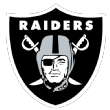 Oakland RaidersWhat if the Raiders had drafted Dan Marino No. 26 overall in 1983 instead of Don Mosebar? Yes, we already know the Raiders believed they had a deal for John Elway hijacked by the NFL earlier in the day, but when it came time for the Raiders to pick, there sat Marino, who was free-falling and could only watch as other QBs in Elway, Todd Blackledge, Jim Kelly, Tony Eason and Ken O'Brien all went before him. Unfounded drug rumors circulating about Marino scared off the Raiders, who thought they were set with Jim Plunkett and former first-round pick Marc Wilson, and Marino went one selection later to Miami. Mosebar had a solid career, going to three Pro Bowls, but Marino was a Hall of Famer. How much better might he have been with the Raiders' defense? How much better would the Raiders have been with Marino under center in the 1980s and '90s? "[We] made a bad, bad mistake in relationship to Marino," former Raiders director of player personnel Ron Wolf said on an ESPN 30 for 30 special on that 1983 draft. "To this day I call him Dan, Dan Mosebar. Because [we] blew [it on] Marino. And he knows that." Perhaps Marino wins a Super Bowl or two and the galvanized Raiders do not become nomads, never leaving Los Angeles for a return trip to Oakland with a future engagement in Las Vegas on the horizon. -- Paul Gutierrez
|


